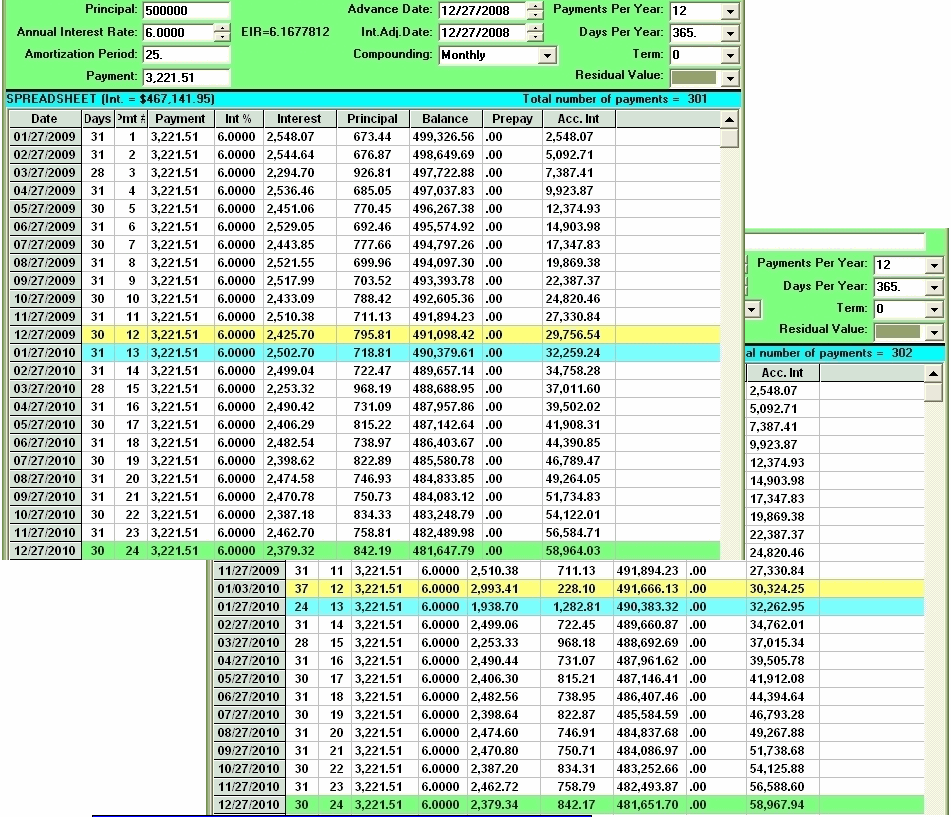Late Payments
Interest is accrued daily on mortgages by definition. Just because an interest calculation is performed at the end of the month does not mean interest is not accruing daily. On the day you take out a mortgage, an interest clock starts ticking. With a traditional fixed rate, monthly payment mortgage, an interest calculation is performed at the end of the month based upon a 30.4167 day month (365/12). The year (aka the banker’s year) is assumed to be divided into 12 equal months and is hardwired into most financial calculators.
When your mortgage payment is late, in financial circles, it is assumed that the lender does not have the money immediately available to reinvest at the same interest rate (called “deemed reinvestment”) in order to achieve the effective interest rate (EIR) on the mortgage. Some lenders will ask you to pay a late fee in addition to your late payment or prorate the interest. Prorating interest calculations based upon an extended month, due to a late payment, can be achieved in various ways and it is open to confusion and much debate. A USA financial company addressed this issue many years ago by introducing amortization schedules based upon a monthly interest factor that is a function of the number of days between payments. Using this method, and if all the monthly payments are made on time the monthly interest factor is based upon a 28, 29, 30 or 31 day month and therefore the monthly interest factor varies each month.
In contrast, a “monthly compounding” mortgage using a banker’s year at an annual interest rate of 12%, as an example, converts to a CONSTANT monthly interest factor of 0.01 because the year is divided up into twelve EQUAL months as mentioned above. The interest factor is used to calculate the interest owing to the lender at the end of each month.
The 365 day mode in my software utilizes the exact number of days between payments therefore eliminating the problem of late fees and/or prorating interest. See the example below where the 12th payment is 7 days late. You simply change the date of the 12th payment (add 7 days) and the entire schedule is instantly recalculated taking into account the late payment. There is no reason for a bank not to readily provide a customer with an accurate and timely recalculation involving late payments. If your bank does not have this capability of handling late payments as easily as my software does, then consider changing banks!

